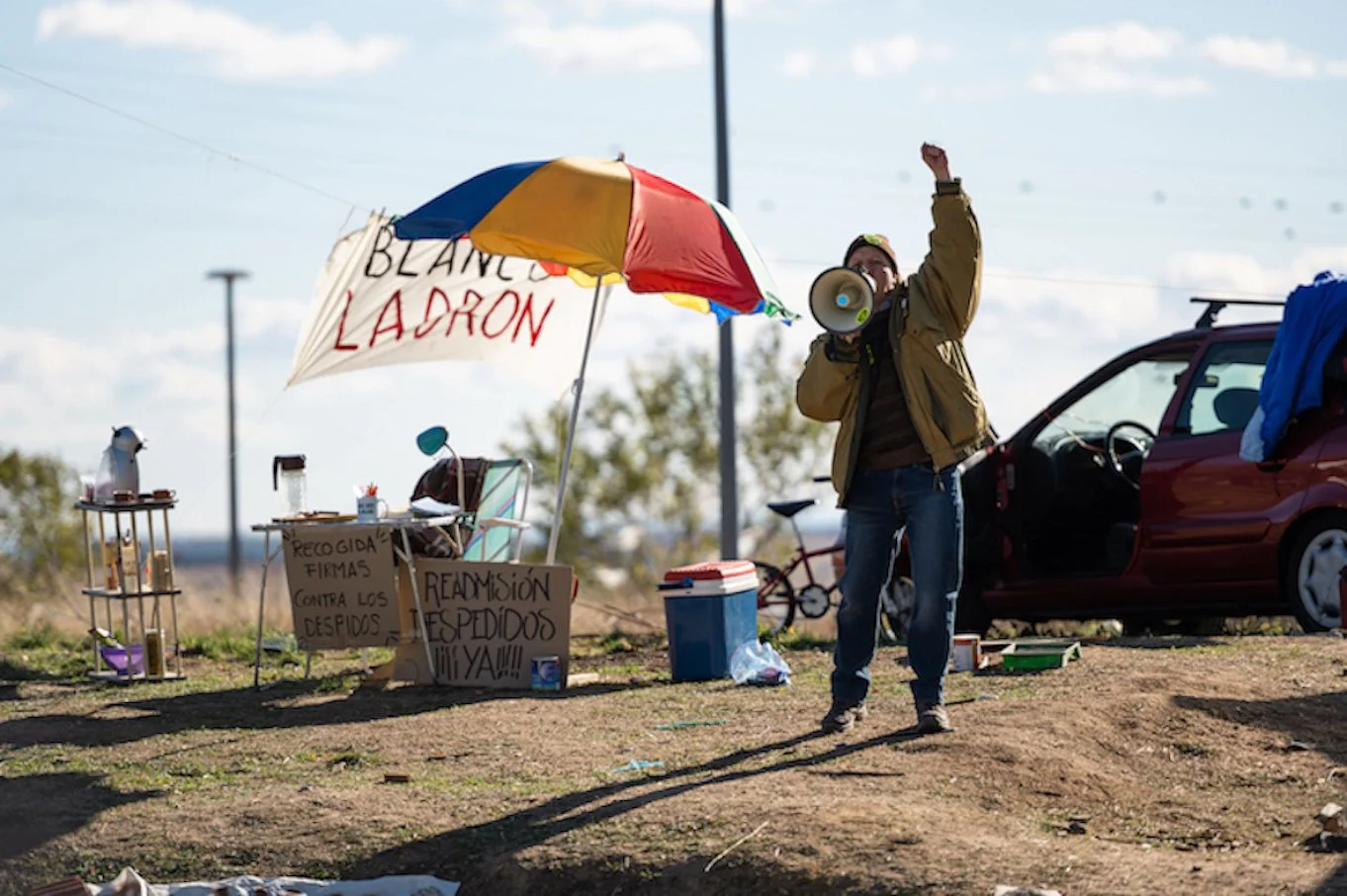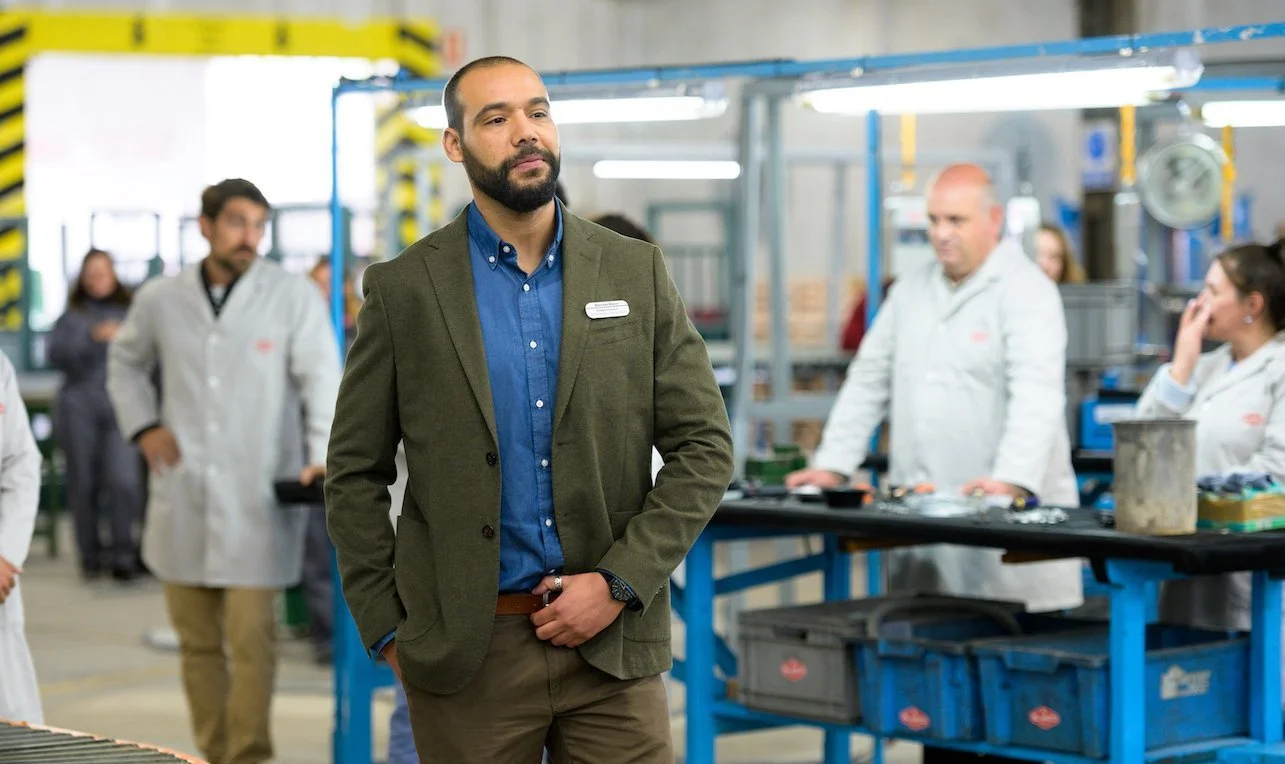Good Bad ‘Boss’
director Fernando León de Aranoa shines a satirical light on spain’s social tensions but come on: who knew javier bardem could be funny?
the good boss
Director: Fernando León de Aranoa • Writer: Fernando León de Aranoa
Starring: Javier Bardem, Manolo Solo, Almudena Amor, Óscar de la Fuente, Tarik Rmili, Mara Guil, Sonia Almarcha, Fernando Albizu, Celso Bugallo, Nao Albet, Rafa Castejón
Spain • 2hrs 1min
Opens Hong Kong May 5 • IIB
Grade: B+
Javier Bardem is not funny.
Okay, that’s not fair. Maybe he’s just never been given a real opportunity to be funny. True, Spanish Jeffrey Dean Morgan Bardem’s breakout was a rom-com, Jamón, Jamón, but that was more charming than funny. Audiences outside Spain got their first real look at Bardem in his 18th film, Before Night Falls, where he played oft-imprisoned, gay Cuban dissident Reinaldo Arenas (he was nominated for an Oscar for it). Then came things like The Sea Inside, about a quadriplegic demanding the right to die, No Country for Old Men, which won him an Oscar for his performance as sociopathic hitman Anton Chigurh, Terrence Malick’s To the Wonder – he was a conflicted priest – and Ridley Scott’s execrable crime thriller The Counselor, notable mostly for Cameron Diaz having pre-Titane sex with a car, and for proving great authors don’t necessarily make great screenwriters. Javier, stop, my sides are splitting!
So when you see Bardem in the opening minutes of The Good Boss (El buen patrón) as industrial scale factory owner Julio Blanco, delivering a heartfelt and humble speech to his staff about loyalty, hard work, and how they are like the children he and his wife Adela (Sonia Almarcha) never had, the easy assumption is that Bardem is playing the so-called straight man to... whoever. And that would be wrong. Bardem is, indeed, funny.
Writer-director Fernando León de Aranoa and Bardem have teamed up for the third time after the middling (and under-interrogating) Loving Pablo in 2017 and Mondays in the Sun way back in 2002, putting them in the running as Spain’s second best working actor-director tandem (after Almodóvar and Banderas, duh). Since the earlier film, de Aranoa has drifted into earnestness – 2015’s A Perfect Day tried to navigate the thorny path of being an aid worker in Bosnia – but The Good Boss comes closer to the bitter tone of Mondays in its examination of Spain’s contemporary failings as pertains to economic and gender disparity, and a rising tide of nationalism.
After opening with a gang of Spanish thugs laying a random beat-down on a group of Arabic friends in a park, the film cuts to Blanco’s speech at the factory. It seems his family-owned and operated Blancos Básculas is in the running for a local Business Excellence award. Julio really wants that award, and he refuses to let anything mess with the looming but unfixed visit from the award committee. Not sacked accountant José (Óscar de la Fuente), who’s pissed enough to park across the street from the factory and hurl insults at Julio daily. Not Miralles (Manolo Solo, Official Competition), the production manager whose collapsing marriage is fucking with Blancos Básculas schedule. Not Liliana (Almudena Amor), an attractive young intern Julio mistakenly believes he can have a no-consequences fling with.
The story, as well as the film, rests on Bardem’s ability to make Julio a combination of entitled, dangerous and magnetic, the kind of asshole we’ve all seen at work and on the news, behaving very badly and getting away with it – often with US$50 million bonuses or “severance” packages. Julio’s not at Goldman Sachs levels of grossness but his minor aggressions and petty manipulations are drawn from the same well and Bardem nails them. But it’s in watching his misdeeds come back to bite him in the ass (a bit) where Bardem gets to show off just how well he can master comic timing and the art of under-stated delivery/expression. I’m not sure Bardem needs to dabble in Adam Sandler or Jim Carrey-type foolishness, but he certainly deserves a chance at more wry, low-key snark like this.
If there’s a knock on The Good Boss, it’s in the retrograde rendering of Arabic men and working women. The local ladies man is Khaled (Tarik Rmili), the only Arabic character in the movie except for the nameless beating victims, and to paint him as a womaniser and homewrecker takes some of the sting out of de Aranoa’s criticism of nationalism. Now Khaled is a threat; a man who is going to swoop in from North Africa or the Middle East and steal your wife. Similarly, the message Liliana ultimately sends is that yup, the best way for a woman to get a good job is to sleep her way to the top. Given how sharp the rest of The Good Boss is it’s likely de Aranoa aim was to make a satirical point about both the fear of brown men and the glass ceiling. The point is also visible in dignified performances that suggest agency by Rmili and Amor, it’s just not quite sophisticated enough to come across at first glance. DEK




